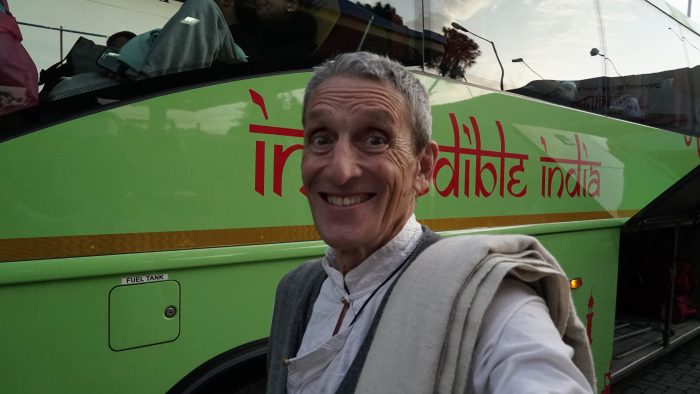

Finding Your Off Switch
Amongst the laid-back locals of Kathmandu there is a saying, “When feeling overwhelmed and not knowing which way to turn, try off”. Few in this impoverished country can visit the United States or Europe or both, but those who do fall into two categories, those who have money and visit, and those who go in hopes of getting a menial job to earn money for their families here. The latter group rarely get visas because they tend to stay illegally, or never return, and the embassy is aware of these ambitions. Yet, some do get visas and some return, eventually.
It is interesting to me to observe the different perspective of the West held by these two groups of people. I find that those who have the luxury and resources for travel, nevertheless prefer staying in Nepal, where, impoverished though it may be, the pace is much slower and grounded. Life here is mostly about family and relating to the land, if farmers, or people if merchants. Merchants could have a shop, much like we have in the West, or a sheet laid out on the roadway with some goods spread on it. Yesterday I saw a “shop” that consisted of an umbrella opened and set upside-down on the walkway with a bunch of diverse goods spread out inside it.
Whether the shop is big or small, the experience of shopping in Nepal is as much about socializing as about buying and selling goods. Nepalese enjoy visiting with each other, and their curiosity and interest in each other often comes out in their daily shopping. The penchant to experience connectedness in even brief interactions is a daily experience by all in this medieval kingdom, business, or otherwise.
Nepalese who have had the opportunity to visit the West for pleasure, will generally tell you that they prefer Nepal, with its intimate lifestyle and feeling of being in an environment that is devoid of the impersonal aspect so dominant in the West, as they perceive it. Many view Westerners as trapped in their striving, only knowing “on” and having no “off” switch. They return to Nepal, despite its poverty and unsophisticated infrastructure, because the basic human values they feel so strongly at home are missed dearly when traveling.
Having lived in Nepal for over a decade (and married to one for fifteen years) I found their warmhearted interactions with others infectious. I am reminded as I write of a comment an American friend made to me one day after my return to the US. “Myumi” said to me, “You know, you have lost some of your innocents.” I had been in the US about five years, and Myumi ‘s words set me reflecting.
Yes, my innocence was slipping away as I integrated into American lifestyle.
I am back in Nepal since about three years, and I guess I am getting back some of my “innocents.” I enjoy being interrogated by shop keepers and tea “wallas” satisfying their natural curiosity that many would find “nosy.” I understand the curiosity that Nepalese have for others, and especially foreigners, as a natural expression of their inclination towards a feeling of connectedness with others, whether strangers or intimates.
In the West our struggle for self-reliance often comes at the expense of losing basic human feelings and interest in one another.
While purchasing gas one day, a friend of mine who has a Zen center in San Francisco purchased sign that said, “Turn Off Your Motor” and put it up in his meditation hall. To the Eastern mind, that is what their Western brothers must do if they want to have peace of mind and reduce depression and stress in their society. Poor though Nepal is, depression and stress is not a National problem, as it is in the West.
While it is good to be focused, it should not lead to tunnel vision. Our material ambitions need not lead us to feeling isolated or disconnected from others or disinterested in others. A balance must be found in the give and take of life that allows us to “slow down and turn off our motor.” Paramahansa Yogananda said almost a century ago that the East should give the West a dose of its spirituality and the West give the East a bit of its material success. It may sound like a romantic idea, but it is in fact realistic.
As his Holiness the Dalai Lama often points out in his teachings, we, as human beings, all share a common goal in our wish to be happy. But, happiness is an elusive achievement, and few, whether rich or poor can claim it easily. Our chances are better when we seek to experience the human element in all our striving and interaction with others.
The best way to have all our desires fulfilled is to decrease their number. As we are only human, we do have needs that must be realized, but there is a big difference between being dragged about by them and approaching them without attachment and free of unnecessary selfishness. As the Rolling Stones advised in one of their songs, “we may not always get what we want, but, if we try some time, we just may find, we get what we need.” Somewhere between being rich and being destitute lies the ground of happiness waiting for us to step upon and discover. It is not so important what we get, but how much we enjoy getting it.
Browse Front PageShare Your IdeaComments
Read Elephant’s Best Articles of the Week here.
Readers voted with your hearts, comments, views, and shares:
Click here to see which Writers & Issues Won.








